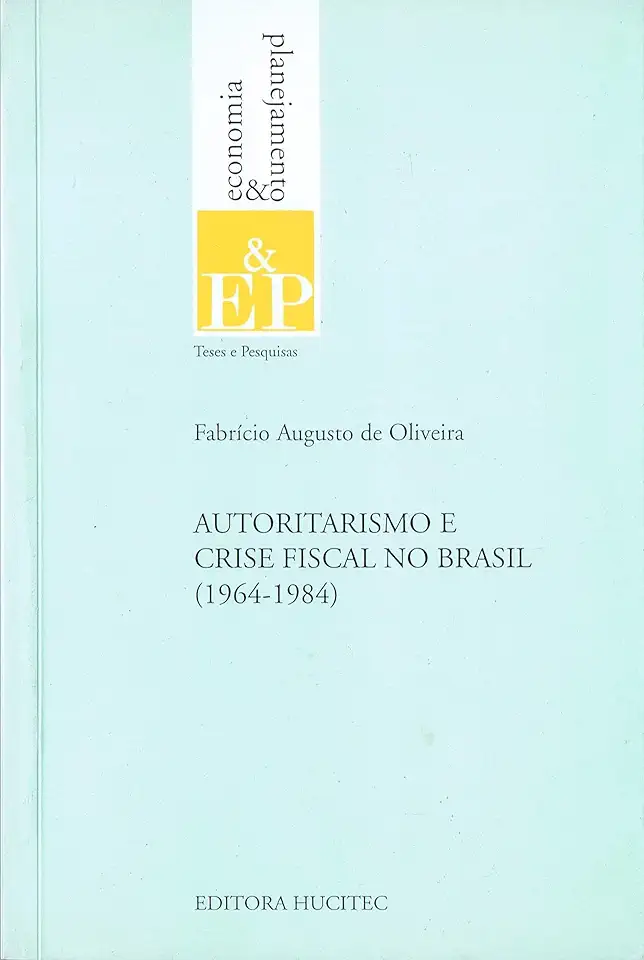
Authoritarianism and Fiscal Crisis in Brazil 1964-1984 - Fabricio Augusto de Oliveira
Authoritarianism and Fiscal Crisis in Brazil 1964-1984
A Comprehensive Analysis of Brazil's Economic and Political Turmoil
In his groundbreaking book, "Authoritarianism and Fiscal Crisis in Brazil 1964-1984," Fabricio Augusto de Oliveira presents a compelling and meticulously researched account of Brazil's tumultuous period under authoritarian rule. This book is a must-read for anyone seeking a deeper understanding of Brazil's economic and political history, as well as the broader implications of authoritarianism on a nation's development.
Unraveling the Complexities of Authoritarian Rule
Oliveira's book delves into the intricate relationship between authoritarianism and fiscal crisis in Brazil during the years 1964 to 1984. He argues that the authoritarian regime, while initially successful in achieving economic growth, ultimately led to a severe fiscal crisis that crippled the nation's economy and left a lasting impact on its political landscape.
Key Features of the Book:
Comprehensive Analysis: Oliveira provides a comprehensive analysis of Brazil's economic policies, political dynamics, and social conditions during the period of authoritarian rule.
Rigorous Research: The book is based on extensive research, including archival documents, statistical data, and interviews with key figures involved in the events of the time.
Engaging Narrative: Oliveira presents his findings in a highly engaging and accessible manner, making the book appealing to both scholars and general readers alike.
Understanding the Roots of Fiscal Crisis
Oliveira meticulously examines the economic policies implemented by the authoritarian regime, highlighting their short-term successes and long-term consequences. He demonstrates how the regime's focus on rapid industrialization and infrastructure development, coupled with its repressive political tactics, created an unsustainable economic model that eventually led to a severe fiscal crisis.
The Impact on Brazil's Political Landscape
The book also explores the political implications of the fiscal crisis, shedding light on the growing discontent and resistance within Brazilian society. Oliveira argues that the economic hardships and political repression fueled a wave of social movements and opposition parties, ultimately leading to the downfall of the authoritarian regime and the transition to democracy.
Lessons for Contemporary Policymakers
"Authoritarianism and Fiscal Crisis in Brazil 1964-1984" offers valuable insights for contemporary policymakers and scholars interested in the relationship between authoritarianism, economic development, and political stability. Oliveira's analysis serves as a cautionary tale, highlighting the dangers of authoritarian rule and the importance of sustainable economic policies and democratic governance.
Conclusion: A Must-Read for Understanding Brazil's History
In conclusion, Fabricio Augusto de Oliveira's book, "Authoritarianism and Fiscal Crisis in Brazil 1964-1984," is a seminal work that provides a comprehensive and insightful analysis of Brazil's authoritarian period. Its rigorous research, engaging narrative, and thought-provoking arguments make it an essential read for anyone interested in Brazilian history, authoritarianism, and the complex interplay between politics and economics.
Enjoyed the summary? Discover all the details and take your reading to the next level — [click here to view the book on Amazon!]